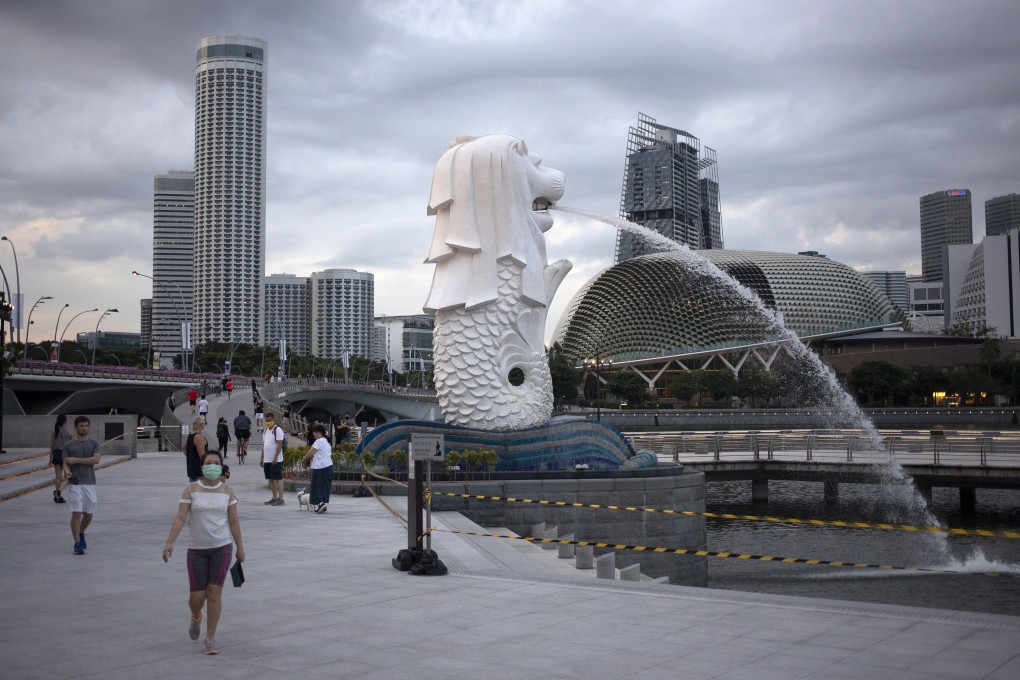Coronavirus: Singapore to reopen shops, parks and pools from Friday
- Eating out in restaurants and working out in gyms are back on the menu as reopening enters phase 2, but religious services and nightclubs remain shut
- All incoming travellers will be tested for the virus from Friday

Health Minister Gan Kim Yong said the second phase would begin at 11.59pm on Thursday, and that apart from a “small list of exceptions” most activities would resume.
“Safe management principles will become even more crucial,” said Gan, who co-heads a multi-ministry task force dealing with the virus, adding that community cases were now under control.
National Development Minister Lawrence Wong said shopping malls and retail shops, as well as sports and public facilities including parks, sports halls, swimming pools and gyms, would be allowed to reopen. More details are to be announced by the authorities soon.

01:40
Singaporeans eat out and shop as coronavirus restrictions relaxed
However, Wong said live music and video screenings would not be allowed in businesses that sold food.